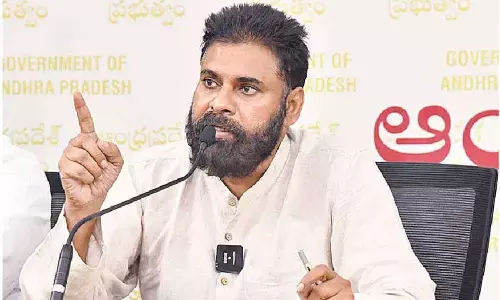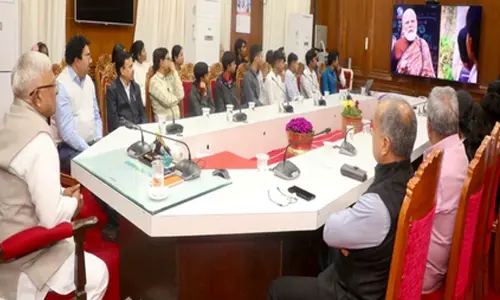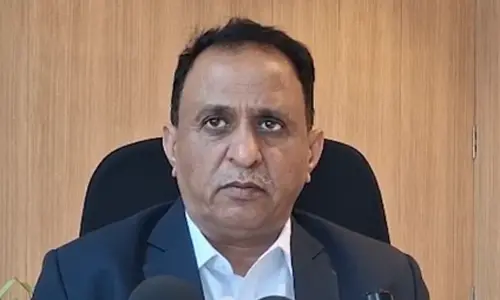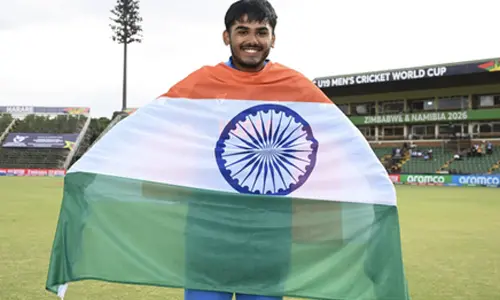Blurred lines between history, myth and fiction
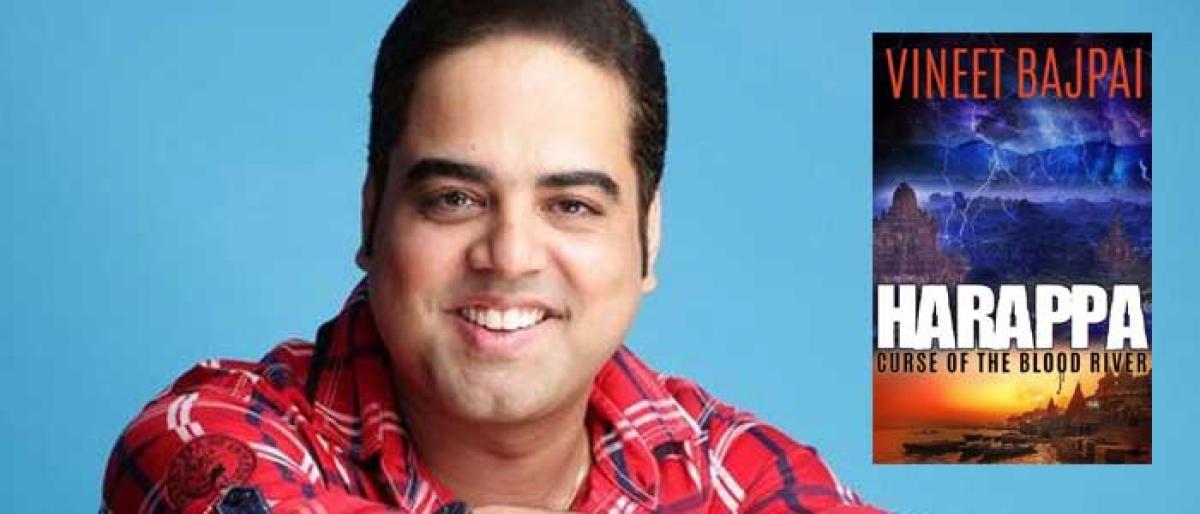
In a candid interview with us, an entrepreneur-turned-author, Vineet Bajpai reveals tidbits about his maiden novel ‘Harappa, Curse of the Blood River’. Vineet, who has previously penned best-selling management and inspirational books, is now making waves with his self-published fiction novel. His debut novel is part of an expansive three-part series woven around the mysteries of Indus Valley Civil
In a candid interview with us, an entrepreneur-turned-author, Vineet Bajpai reveals tidbits about his maiden novel ‘Harappa, Curse of the Blood River’. Vineet, who has previously penned best-selling management and inspirational books, is now making waves with his self-published fiction novel. His debut novel is part of an expansive three-part series woven around the mysteries of Indus Valley Civilisation and its sudden disappearance.
Excerpts
It’s a long way away from being an entrepreneur to an author especially one with historical fantastical elements. How did this change materialise?
I wrote business books because over my entrepreneurial and corporate journey I truly felt I had learnt things I ought to have shared with readers around the world. But just as I wrote management books to share my experience in the industry and help my readers build better companies and careers, I also felt a strong urge to also express the creative storyteller in me. I wanted to write about India’s ancient mysteries, our rich heritage, our profound myths and more. Therefore, Harappa.
Any particular reason for choosing Harappan civilisation as the foundation for your saga?
The Indus Valley Civilisation was, I remember, the first chapter in the first NCERT history text book that we had in our curriculum back in school. From that very time, the Harappan civilisation has intrigued me deeply. Over the years I read about the numerous theories and counter-theories that emerged around the various mysteries of this foggy chapter of Indian history. There was no better backdrop than Harappa for me to write a fiction thriller.
A slew of mythological/historical fiction novels and series have been written in the last few years. Do you see a particular reason for this increased interest?
One of the profound opportunities missed by our great country has been our inability to creatively exploit the rich history, mythology and heritage of India. Whether it is in filmmaking, gaming, tourism or literature, we have not even leveraged one per cent of the content underpinning available to us.
It was this quest for creating a high-quality book based on our own Indian heritage, our own unanswered myths and mysteries, which made me envision Harappa.
The reason for this resurgence is also that the Indian reader is now prepared to consume content that finds its roots in Indian heritage. The Indian audience has seen the stories and success of western authors and is now rooting for Indian writers to follow suit, if not outperform.
Debut novels usually draw strongly from the author’s personal experiences and life. Which of your characters are based on real people in your life?
I absolutely love this question! (Laughs). There is no one person or people from my life that have inspired the characters. But yes, there are traces of real people in each character. Vidyut is who I would like to be in life! There are strong and beautiful female characters in the book that have been inspired by some equally strong and beautiful women I know in real life. Characters like Chandradhar and Somdutt take inspiration from some close friends I have.
Unlike your other books for ‘Harappa, Curse of the Blood River’, you took an unconventional route and self-published. Why and how did your experience differ between the two?
When it came to fiction, there were several considerations that were different from management or non-fiction writing. The first and the foremost was the scheduling of publishers. In a genre, as competitive as historical and mythological thrillers, waiting for several months for your turn in the publisher’s long list of books for the year, was something we were not prepared to do. We wanted HARAPPA to be out in the readers’ hands as quickly as possible, given also that it is the first in a series.
A video promoting a novel, a marketing tool that’s only recently been brandished. How crucial and successful do you consider these social media marketing strategies?
In today’s competitive environment, where a very large number of books hit retail every week, social media and digital marketing becomes critical in the initial days of the book. They play a role even in sustenance campaigns. You may be an excellent writer. But if your book stays hidden in one corner shelf of bookstores and reaches no readers, how can you hope to achieve the true potential of your work? That is a sad thing to happen to an intellect and creativity based ecosystem, but it is a harsh reality.
Would you recommend the same for other authors, self-publishing over traditional means or even e-publishing?
Yes, I would, and I don’t think there is anything wrong with that. Most publishers today, barring the really big ones, outsource most of the value-adds. So, if a first-time author has the requisite resources and the energy to envision the project, bring a team together and execute, why not? Having said the above, there is a word of caution for any author planning to take the self-publishing route. A publisher is a great filter, a primary monitor of quality. They create a benchmark for the work being put out and play a crucial role.
When can the readers expect the follow-up books in the series?
We will be releasing the sequel ‘Pralay – The Great Deluge’ in early 2018. I am overwhelmed by the mails, messages and requests of my readers, as they demand ‘Pralay…’ at the earliest!
By: Shirish Kumar








